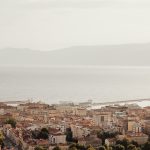ZAGREB, October 11, 2019 – Migrations are one of the greatest challenges of our time and the EU has to deal with them jointly and responsibly, Croatian President Kolinda Grabar-Kitarović said addressing the Arraiolos Group summit in Athens on Friday and pointed out the huge efforts Croatia has been making to protect the EU’s longest external land border.
Grabar-Kitarović was addressing the 15th informal meeting of 13 EU heads of state without executive powers, known as the Arraiolos Group, which is being held in Greece this year, the two central topics of the meeting being ways of dealing efficiently with the economic and migrant crises and jointly resolving modern security challenges in the EU and its member states.
“The migration issue is one of the biggest challenges of our era,” said Grabar-Kitarović and expressed regret that the EU had not yet responded with solutions that would be acceptable to all member states.
“Only with joint effort can we solve that issue so that we can protect migrants and their rights and relieve the negative consequences of illegal migrations,” and that is why all stakeholders have to “act responsibly,” she said.
Croatia is “investing huge efforts to successfully protect the EU’s longest external land border,” she underscored.
She rejected claims by some organisations and politicians that Croatia’s police were applying brutality in preventing illegal migrations from neighbouring Bosnia and Herzegovina.
Refugee camps are being erected in the neighbouring country along the border with Croatia, with migrants attempting to cross it to get to western EU members, she recalled.
Cooperation between authorities in Sarajevo and local authorities in the country is not good, she said and reiterated that Croatia was successfully protecting the longest land border and was doing everything to access the Schengen Area as soon as possible.
Europe must not be slow in seeking answers and solutions to the challenges of our times, the summit’s host, Greek President Prokopios Pavlopoulos, said.
He called for strengthening European institutions during the current time of huge challenges to the European Union and the world and warned that Europe had to catch up with the times so that it could handle challenges.
Speaking about the economic crisis, President Grabar-Kitarović said that the outlook for global growth and preventing possible economic crises was dwindling and according to forecasts economic growth would slow down to the lowest annual rate (2.9 percent in 2019, 3 percent in 2020) since the financial crisis.
In those circumstances we can expect a “fall in economic activity, a loss of jobs and further impoverishment of the already vulnerable social groups.”
She also cited the escalation of trade tensions as well as the threat of a no-deal Brexit and the demographic decline.
“Even though there is no direct danger to Croatia’s economy in that regard an even mild no-deal exit (by Great Britain) will have a huge impact and slow down growth rates in Europe and we will all feel it,” she warned.
The population decrease is strongly affecting some EU member states, she said and added that demography was a central priority of her term in office.
“The negative demographic trend in Croatia is already restricting economic growth, particularly in the east (Slavonia),” she underscored.
In the future the EU has to work on erasing visible and invisible borders within the Union itself, she added, stressing that the uneven development in the European community continued to be a major challenge.
Bulgarian President Rumen Radev warned that the EU was still a Europe of differences, with Grabar-Kitarović adding that the Three Seas Initiative was a good way to bridge those differences.
Croatia has taken a proactive role in that initiative to strengthen Europe’s resilience, particularly with regard to energy security and neutralising the lack of infrastructure in central Europe, she said.
More news about Croatia and the EU can be found in the Politics section.







